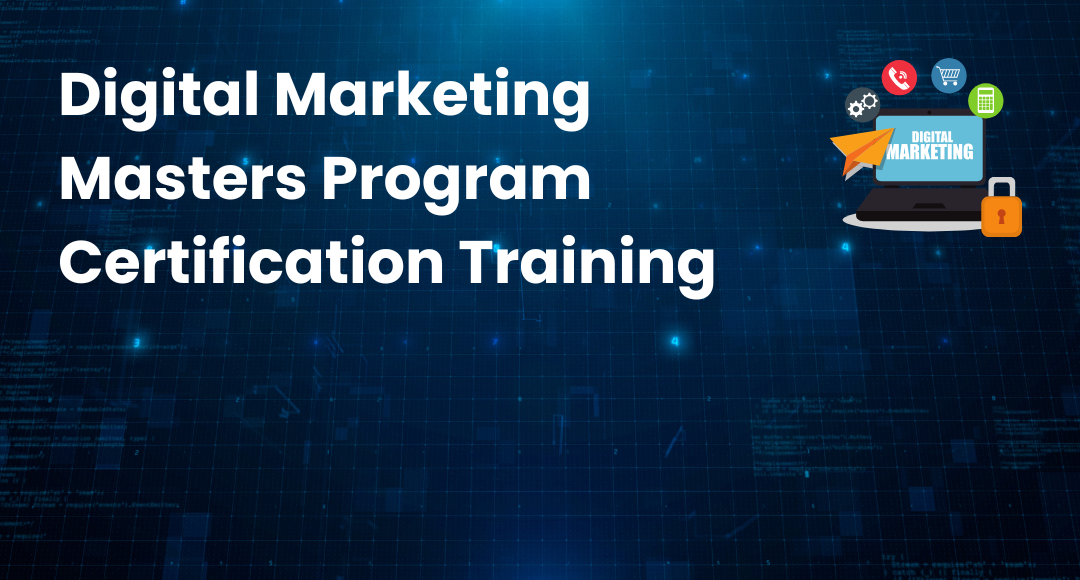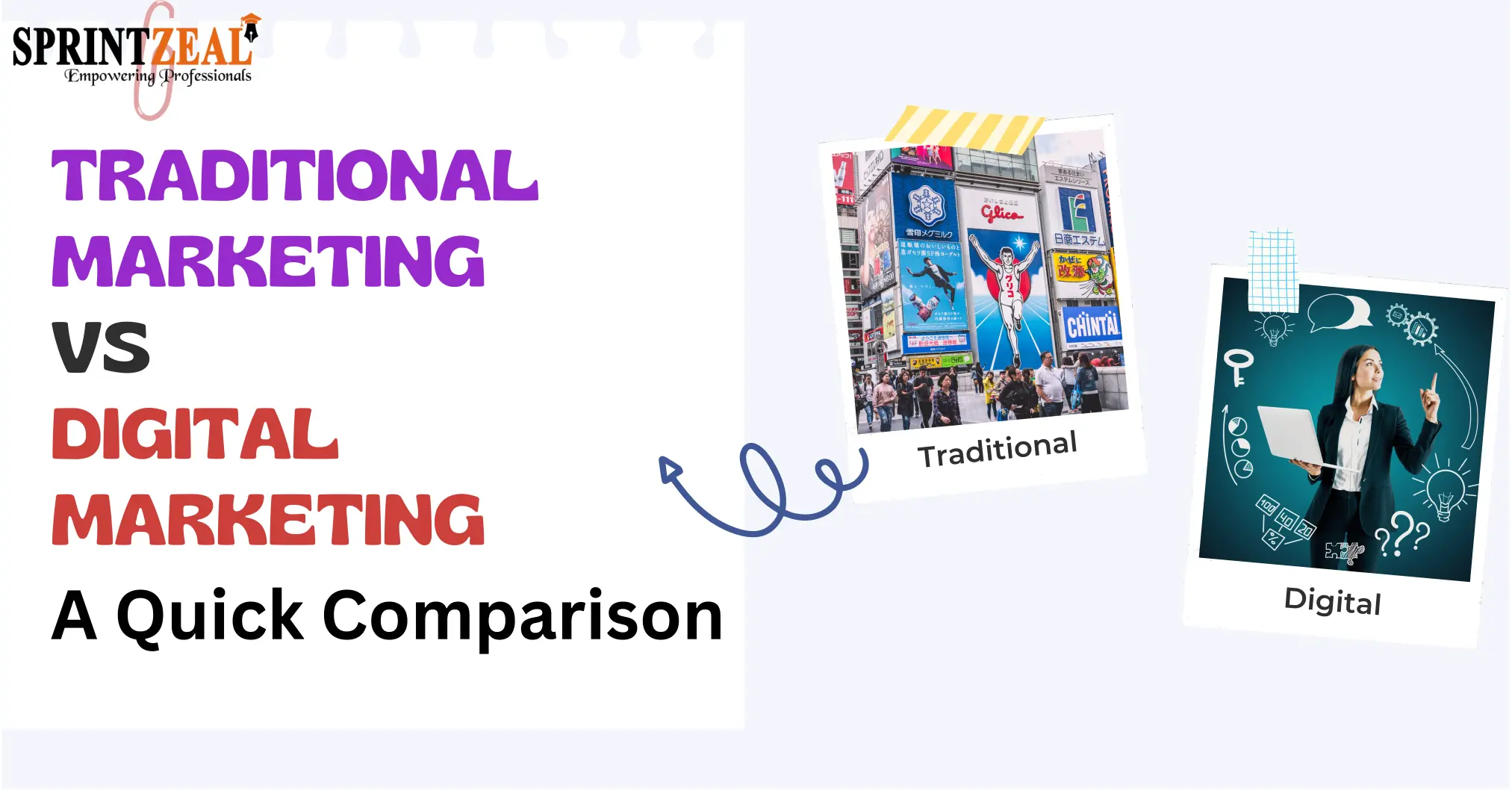How SaaS Companies Can Build a High-Performing Marketing Team
-
 By Sprintzeal
By Sprintzeal - Published on Jun 6 2025

Building a SaaS product is hard. Building a SaaS marketing team that actually knows how to sell it? Even harder.
In the early stages, it's tempting to treat marketing like an afterthought—something you'll figure out "after launch," "after product-market fit," or "after we hire that one unicorn marketer who can write copy, build funnels, run ads, and make TikToks."
The truth is, great marketing teams aren't hired fully formed—they're built with intention. From the very first hire to the foundational processes, your early decisions will shape how fast (or painfully slowly) you scale.
This isn't about bloated headcount or chasing shiny tools. It's about creating a lean, strategic marketing function that actually supports growth—without becoming a silo, a bottleneck, or a revolving door of burnt-out generalists.
In this article, we'll break down how SaaS founders can build a marketing team that's agile, aligned, and performance-driven—starting from day one.
Table of Contents
Hire for Range, Not Just Pedigree
In the early days of building your SaaS marketing team, versatility isn't just helpful. It's essential. You're not looking for people to fill rigid departmental boxes. You're looking for sharp, adaptable thinkers who can wear multiple hats without dropping the ball (or their minds).
That means prioritizing range over résumé.
Yes, a candidate who's done a tour of duty at a hot startup may look great on paper—but can they write compelling copy and analyze campaign performance? Can they create a scrappy webinar and handle a round of customer interviews? Early-stage marketing is a contact sport, and your hires should be comfortable switching from strategy to execution in the same afternoon.
Look for:
- Operators, not just thinkers: You don't need a director of PowerPoint decks. You need people who get their hands dirty and make things ship.
- Curious problem-solvers: Those who ask, "What's working? What's not? How can we test it fast?" instead of waiting for instructions.
- Communicators: Internal and external. They should be able to tell your story and explain the "why" behind their work to stakeholders who don't speak marketing.
And while experience matters, early-stage SaaS success is often driven by people who have something to prove, not just something to protect. Pedigree is nice. Hunger is better.
Prioritize Strategy Before Channels
It's tempting to dive headfirst into tactics—launching a blog, spinning up paid ads, chasing LinkedIn impressions like your job depends on it (because maybe it does).
For teams still defining positioning or go-to-market motion, working with the best SaaS marketing agencies for B2B can help clarify strategy, validate channels, and avoid costly trial-and-error early on.
But without a clear marketing strategy, you're just executing tactics in a vacuum—busy, but directionless, and unlikely to deliver meaningful results.
Before you start posting, promoting, or planning campaigns, define the core:
- What are your positioning and messaging pillars?
- Who exactly is your ICP—and what do they actually care about?
- What's your go-to-market motion? Where does marketing fit in that journey?
A high-performing SaaS marketing team doesn't waste cycles on channels that don't align with their goals. They choose tactics that support strategy, not the other way around. That means your first marketer shouldn't just be a content machine or a campaign wrangler. They should be a sharp thinker who can map initiatives to outcomes.
Clarity here will save you from six months of marketing theater and zero revenue lift. Get the strategy right, and every channel you add becomes an amplifier, not a distraction.
Set the Right Roles (Before You Set the Wrong Expectations)
Hiring your first few marketers is a little like drafting a band. You don't need everyone playing lead guitar—you need rhythm, vocals, drums, and someone who knows how to actually mix the thing. The same goes for your marketing team: stack your talent for versatility, not vanity titles.
Too many early-stage SaaS companies rush to hire a "Head of Growth" or "Brand Lead" before they've figured out who's writing the blog, running the campaigns, or even tracking basic analytics. Titles are cheap. Execution is not.
Here's a better way to think about it:
- Start with core competencies, not job titles. What do you actually need right now? Content creation? Digital performance marketing agency? Product messaging? Map roles to real work, not LinkedIn-friendly labels.
- Hire generalists first, specialists later. In the early stages, you want people who can write copy, set up email flows, tweak landing pages, and pull insights from data. Once you know what's working, bring in deeper expertise.
- Define success collaboratively. Don't assume your hire knows what success looks like for your business. Align early on KPIs, milestones, and the balance between experimentation and execution.
Building a high-performing team isn't about hiring unicorns—it's about setting people up to do their best work without guessing what their job is. That's not just good management. That's good marketing.
Equip Your Team With Tools That Scale Smarter, Not Louder
Hiring great marketers is only half the equation. The other half? Making sure they’re not spending half their week wrangling spreadsheets, duct-taping platforms together, or begging devs for one more landing page tweak.
Your tools should extend your team’s capabilities—not become another thing to manage. This is especially true in a SaaS environment where agility and insight can make or break your growth curve.
Here are a few essential categories (and smart options) to give your marketing team the leverage they need:
Here are a few categories (and examples) to focus on:
Project & Workflow Managers
Marketing moves fast. Campaigns overlap, assets multiply, and half your team is juggling five deadlines and three Slack channels. Without a system to manage it all, even the sharpest team will end up buried under their own ambition.
Modern project and workflow management tools help your team prioritize, delegate, and actually deliver. The best platforms offer customizable workflows, visual timelines, and integrations with your content calendar and messaging tools—so your campaigns don’t live in someone's inbox or, worse, someone’s head.
The right setup reduces bottlenecks, flags issues early, and keeps the whole team aligned on goals and progress, without the soul-crushing weekly status meeting that could’ve been a dashboard.
Whether you go with a sleek, kanban-style board or a full-blown cross-functional workflow engine, choose something that can scale as your marketing operation grows.
Form Builders & Lead Capture Tools
Lead capture is more than a formality—it’s the first real exchange between your brand and a potential customer. If that exchange feels clunky, generic, or overly demanding, it’s a missed opportunity.
Modern form builders go far beyond the old “Name, Email, Submit” routine. They allow for logic-based flows, conditional questions, embedded micro-surveys, and custom styling that feels like part of your brand—not a pop-up from 2008.
Typeform is well-known for its polished, conversational forms—but it's far from the only solution available. There are several Typeform alternatives that offer similar functionality at a fraction of the cost, ideal for startups that need clean UX without committing to premium pricing out of the gate.
Collaborative Design & Video Tools
Design and video are no longer just polished—they’re part of the product story. But producing great creative doesn’t mean endless back-and-forth between marketers, designers, and stakeholders. That’s where collaborative platforms step in.
Today’s creative tools like Canva don’t just enable design—they streamline it. With features like real-time commenting, version control, and shared libraries, your marketing and design teams can work together without getting buried in endless review threads or duplicate file chaos.
For video? Think asynchronous editing, feedback layers, and cloud-based rendering that lets your team iterate quickly without handing projects off to a black box of post-production purgatory. Whether you're launching a product explainer, a social video series, or repurposing webinar content, the right tools keep everyone aligned, without sacrificing quality or sanity.
Enterprise-Grade SEO Tools
When your SaaS company levels up from scrappy startup to serious contender, your SEO game needs to grow up, too. Enterprise SEO isn’t just about keywords—it’s about site architecture, international targeting, technical health, and scalable content optimization.
Tools like Seobility, Prerender.io, or Lumar.io are built for enterprise-level SEO complexity, offering deeper insights, workflow integrations, and support for massive site structures. They help ensure your content doesn't just rank—but ranks where it actually matters for high-intent leads.
As part of scaling your SEO strategy, many companies also partner with a SaaS link building agency to strengthen domain authority and acquire quality backlinks—especially when internal resources are focused on content and product marketing.
If you’re not ready for that investment yet, platforms like Ahrefs and Semrush can still get you surprisingly far—but be aware that as your operations scale, so do your SEO needs.
Analytics & Reporting Dashboards
Modern SaaS marketing teams need centralized, accessible analytics that go beyond vanity numbers. It's not about how many people clicked—it's about who converted, where they came from, and what content moved them along.
Early-stage teams can get a ton of value from lightweight tools that integrate cleanly with their CRM or email platform—enough to build solid feedback loops without wasting hours on spreadsheet gymnastics. But as you grow, your reporting needs will mature too. That’s when more robust business intelligence (BI) tools or specialized attribution platforms become essential, not just to measure performance but to optimize it across teams and timeframes.
The real goal? Making sure your data doesn’t just live in a dashboard—it informs decisions. If your team can’t quickly answer “what’s working and why,” your analytics aren’t keeping up with your ambition.
Invest in Culture Before You Think You’ve “Earned” It
Culture isn't ping-pong tables and “good vibes only” Slack channels. It's how your team makes decisions. How they collaborate under pressure. How safe they feel pitching a weird idea without a 47-slide deck to back it up.
Startups often treat culture like something you build later, once you’ve “made it.” But by then, the habits—good or bad—are already set. And in marketing, where burnout and misalignment can wreck performance faster than any algorithm change, culture is your compound advantage.
So what does a strong marketing culture look like in practice?
- Psychological safety as standard – Your team should feel safe to challenge assumptions, speak up about bad ideas, and try things that might fail.
- Clarity over chaos – Everyone knows what they’re working toward and how success is measured.
- Cross-functional collaboration – Marketing doesn’t exist in a vacuum. They’re syncing with product, sales, and success, not operating like a rogue comms unit.
- Time for thinking, not just reacting – If your team is only executing, they’re not innovating. Build breathing room into your workflows.
Final Thoughts: Build for Agility, Invest in Clarity
Your first marketing hires shape more than just your early campaigns. They define how your SaaS brand shows up, scales, and sustains momentum. What sets the most effective teams apart isn’t how much they spend or how fancy their tools are. They’re the ones with clear goals, focused roles, and systems that evolve with them.
Start with strategy, not speed. Build in ways that support collaboration, not chaos. And don’t confuse noise for traction—great marketing speaks clearly to the right people, at the right time, with the right message.
Because in a space where growth is the goal, clarity is your real competitive edge.
Subscribe to our Newsletters
Popular Programs
Trending Posts
A Beginners guide to LinkedIn Marketing in 2026
Last updated on Feb 27 2024
The ABC's of Communication for Marketers & Advertisers
Last updated on Mar 11 2025
Traditional Marketing vs Digital Marketing: How to Choose?
Last updated on Jan 9 2023
Latest Digital Marketing Manager Interview Questions and Answers 2026
Last updated on Apr 25 2024
SEO Optimization Tips for 2026
Last updated on Sep 27 2022
Career in Advertising - The Beginner's Guide
Last updated on Mar 28 2025
Categories
- Other 73
- Agile Management 49
- Cloud Computing 58
- Project Management 174
- Data Science 68
- Business Management 88
- Digital Marketing 83
- IT Service Management 29
- Programming Language 60
- AI and Machine Learning 86
- IT Security 113
- Quality Management 78
- IT Hardware and Networking 26
- Microsoft Program 5
- Workplace Skill Building 15
- Risk Management 9
- Information Security 8
- Leadership and Management 9
- Corporate Training and Development 1
Trending Now
Top Google Chrome Extensions for Online Marketers in 2026
ebook11 Most Common Misconceptions About SEO in 2026
ebookGuide to Banner Advertising for Google Ad Sense and Other Ad Networks
ebookBrand Managers Guide For 2026
ebookDigital Marketing – Benefits, Types, Certifications and Jobs
ebookLatest Digital Marketing Manager Interview Questions and Answers 2026
ebookTop SEO Topics and Concepts – Role of SEO, Google, and AI with SEO
ebookDigital Marketer Interview Questions and Answers 2026
ebookFundamentals of Digital Marketing: A Roadmap to Become a Pro
ebookBest Digital Marketing Books for 2026
ebookOn Page SEO Guide
ArticleDigital Marketing Plan - How to Create and Execute it
ebookBrand Marketing Strategy Guide
ArticleYouTube Marketing Guide 2026
ebookCareer in Digital Marketing - A Complete Guide
ebookSEO Optimization Tips for 2026
ebookCareer in Advertising - The Beginner's Guide
ebookAffiliate Marketing - A Comprehensive Guide for Beginners
ebookCPA Marketing Guide 2026
ebookSearch Engine Marketing - A Guide for Beginners
ebookTop Digital Marketing Tools 2026
ebookThe future of Digital Marketing
ebookConversational Marketing - The Ultimate Guide 2026
ebookCoca Cola Marketing Strategy - A Case Study
ebookTesla Marketing Strategy: Key Lessons to Learn
ebookDigital Marketing Challenges & Solutions in 2026
ebookSEO in Digital Marketing - How Does It Work?
ebookHow to Create a Social Media Marketing Strategy
ebookEmail Marketing for Beginners - Tips, Tools and Advantages
ebookColors for Marketing: Psychology of Colors for Your Brand
ebookLinkedIn B2B Marketing Guide
ebookWhat is PERT? How to use PERT in Project Management?
ebookA Beginners guide to LinkedIn Marketing in 2026
ebookTraditional Marketing vs Digital Marketing: How to Choose?
ebookTypes of Infographics - When and How to Use
ebookDigital Economy - What is it and why is it important
ebookWhat is Digital Leadership? A Brief Guide
ebookDigital Marketing Tips for 2026
ebookOnline branding - Examples & Strategies
ebookAmazon Marketing Strategy – A Brief Guide
ebookNetflix Marketing Strategy- An Overview on Marketing Tactics of Netflix
ebookIKEA Marketing Strategy - An Inspiring Finding from the Case Studies
ebookNike Marketing Strategy 2026 - 7 Effective Findings from Case Studies
ebookDiscover Starbucks Marketing Strategy: The Success Secret
ebookMcDonalds Marketing Strategy: Inspiring Findings from a Case Study
ebookWhat is Online Networking? How Can It Benefit Your Career Success?
ebookMicrosoft’s Market Success Strategy: A Case Study
ArticleCareer Opportunities in Digital Marketing - A Complete Guide
ArticleSocial Media Marketing Fundamentals for Business Growth
ebookCrafting an Effective Social Media Strategy
ArticleRed Bull's Extreme Marketing Strategies: Gives You Wings
ArticlePepsi Marketing Strategies: Battle of the Colas
ArticleBMW’s Marketing Strategy: Beyond a Lifestyle Brand
ebookContent Optimization Strategies for Digital Marketing Success
ArticleThe ABC's of Communication for Marketers & Advertisers
Article5 Steps to a Privacy-Centric SaaS Marketing Strategy
ArticleHow to Boost Your Marketing Efforts: 5 Advertisement Ideas
ArticleWhat Makes the Best Email Marketing Platform for 2026?
Article7 Critical Go-To-Market Strategy Mistakes to Avoid in 2026
ArticleHow to Choose the Best Marketing Automation Tool for Your Needs
ArticleResearch on the Marketing Strategies of Famous Brands
Article6 Cold Email Tools Tailored for Tech Startups
ArticleWhy More Students Are Choosing to Study Digital Media (Even If They Don’t Always Know What to Call It)
Article10 Best Ways to Use Reviews in Your Social Media Ads in 2026
ArticleEffective interpersonal communication for shaping your workplace skills
ArticleHustle Smarter, Not Harder: How Your Social Network Can Boost Your Income
ArticleTranslating Certifications into Resume Keywords Recruiters Actually Search For
ArticleTop 5 Best Perplexity SEO Experts to Scale Your Visibility
Article4 Best AI SEO Agencies to Dominate Search and AI Overviews
ArticleEssential Social Media Marketing Interview Questions (2026)
ArticleTop Content Writer Interview Questions and Answers to Ace Your Next Job
ArticleWhen You Need an MSP – How to Tell Your Marketing Needs Backup
ArticleGenerate Template-Based Clips Using an AI Video Maker Effortlessly
ArticleDigital Marketing for Local Businesses: Tips to Get More Customers
ArticleDigital Marketing Job Description: Responsibilities and Skills
ArticleSEO Strategies That Actually Work in 2026
ArticleSocial Media Marketing Strategy to Watch in 2026
ArticleSocialWick vs. SocialGreg: A 7-Day Instagram Quality Test
ArticleMastering Google Analytics: A Comprehensive Beginner's Roadmap
ArticleBest Software for SEO: Top Tools to Boost Your Rankings in 2026
ArticleBest 7 Visitor Management Systems With Real-Time Host Notifications
ArticleBest Email Marketing Software for Startups
Article






